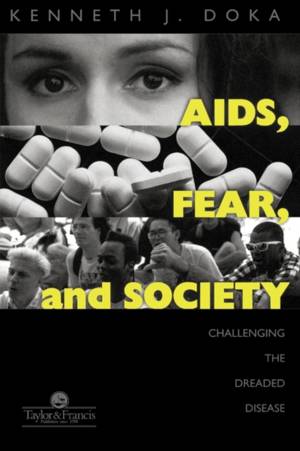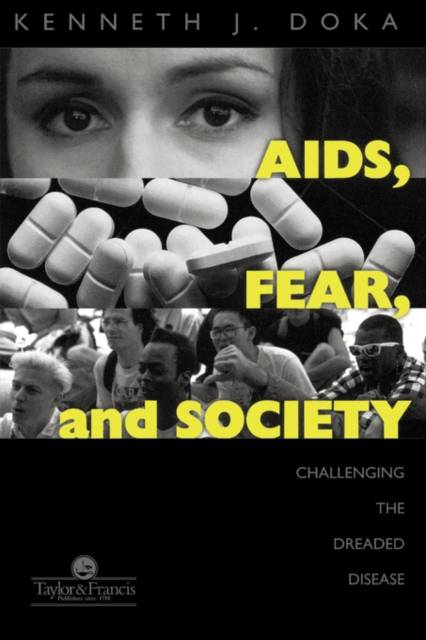
Bedankt voor het vertrouwen het afgelopen jaar! Om jou te bedanken bieden we GRATIS verzending (in België) aan op alles gedurende de hele maand januari.
- Afhalen na 1 uur in een winkel met voorraad
- In januari gratis thuislevering in België
- Ruim aanbod met 7 miljoen producten
Bedankt voor het vertrouwen het afgelopen jaar! Om jou te bedanken bieden we GRATIS verzending (in België) aan op alles gedurende de hele maand januari.
- Afhalen na 1 uur in een winkel met voorraad
- In januari gratis thuislevering in België
- Ruim aanbod met 7 miljoen producten
Zoeken
€ 109,95
+ 219 punten
Uitvoering
Omschrijving
Historically, AIDS is just one of a series of dreaded diseases that have aroused both great fear and irrational actions. The previous diseases, including bubonic plague, syphilis, tuberculosis, leprosy and cancer, have evoked such a sense of dread that rational moves to halt the disease have become compromised.; This text examines the deep sense of fear that AIDS evokes, stigmatizing those who suffer from the disease, as well as their families and caregivers. Until AIDS can be seen for what it actually is - a life-threatening disease - policies providing for humane treatment will not evolve. The book also emphasizes that diseases are more than biological phenomena or individual catastrophes - they are profoundly social events. The ways in which diseases are spread and treated are strongly influenced by larger sociological considerations, and they may have the capacity to change social institutions or society Itself. Rooting Aids In The History Of Diseases, The First Part Of The book reviews the nature, history and responses of earlier dreaded diseases. The next section examines AIDS itself, proposed as the archetypal dreaded disease. Already creating a sense of panic, AIDS is also shown to be a social disease, likely to have significant effects on the social order. Thus, only by containing the epidemic of fear and controlling the resulting irrationality, can the AIDS epidemic be halted.
Specificaties
Betrokkenen
- Auteur(s):
- Uitgeverij:
Inhoud
- Aantal bladzijden:
- 206
- Taal:
- Engels
- Reeks:
Eigenschappen
- Productcode (EAN):
- 9781560326816
- Verschijningsdatum:
- 1/05/1997
- Uitvoering:
- Paperback
- Formaat:
- Trade paperback (VS)
- Afmetingen:
- 154 mm x 230 mm
- Gewicht:
- 272 g

Alleen bij Standaard Boekhandel
+ 219 punten op je klantenkaart van Standaard Boekhandel
Beoordelingen
We publiceren alleen reviews die voldoen aan de voorwaarden voor reviews. Bekijk onze voorwaarden voor reviews.









